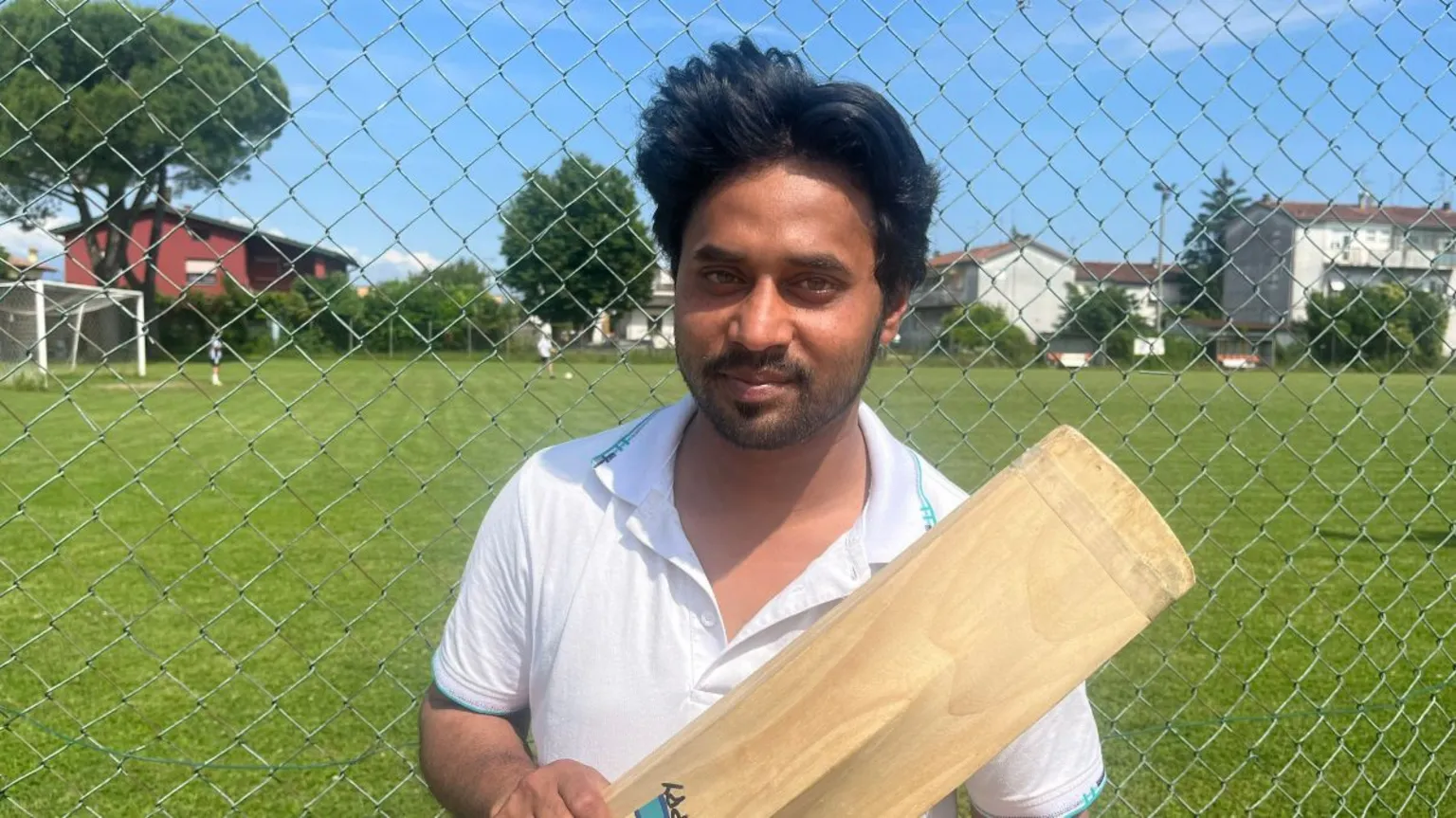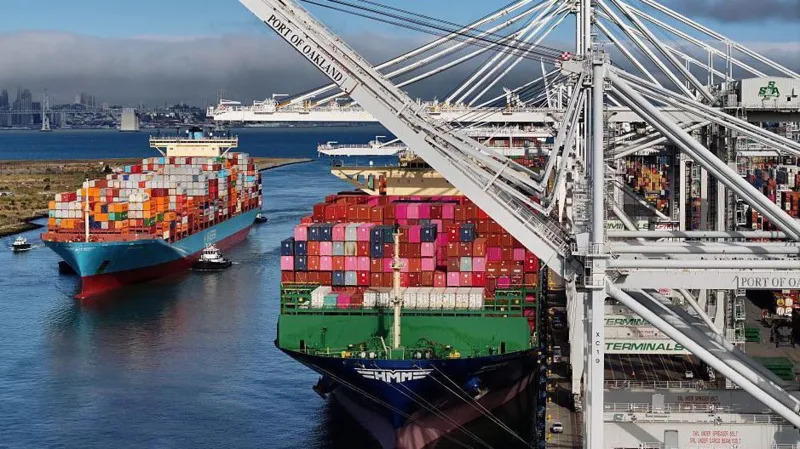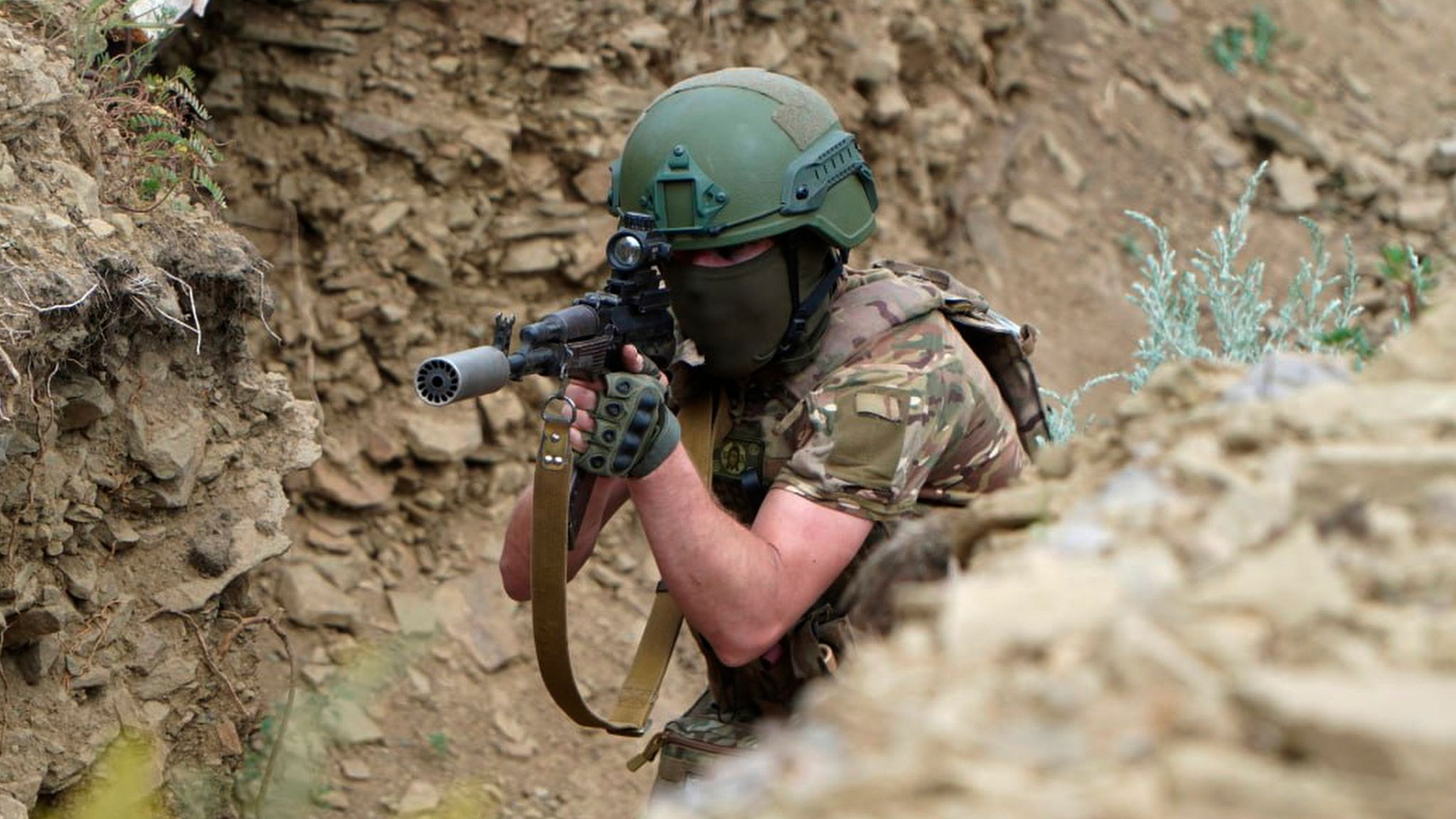The Italian town that banned cricket
Under the scorching sun on Italy’s Adriatic coast, a group of friends from Bangladesh are practising their cricket skills on a small patch of concrete.

They are playing on the outskirts of Monfalcone, close to Trieste airport, because they have in effect been banned by the mayor from playing in the town itself.
They say those who try can face fines of up to €100 (£84).
“If we were playing inside Monfalcone, the police would have already got here to stop us,” says team captain Miah Bappy.
He points to a group of Bengali teenagers who got “caught” playing their national sport at the local park. Unaware they were being filmed by security cameras, their game was broken up by a police patrol who gave them a fine.
“They say cricket is not for Italy. But I’ll tell you the truth: it’s because we are foreigners," Miah says.
The ban on cricket has come to symbolise the deep-seated tensions that are flaring up in Monfalcone.
The town has an ethnic make-up unique in Italy: of a population of just over 30,000, nearly a third are foreigners. Most of them are Bangladeshi Muslims who began to arrive in the late 1990s to build giant cruise-ships.
As a consequence the cultural essence of Monfalcone is in danger, according to mayor Anna Maria Cisint, who belongs to the far-right League party.
She swept to power on the back of anti-immigration sentiment - and has gone on a mission to “protect” her town and defend Christian values.
“Our history is being erased,” she tells me. “It’s like it doesn’t matter anymore. Everything is changing for the worse.”
In Monfalcone, Italians in Western clothes mingle with Bangladeshis wearing shalwar kameez and hijabs. There are Bangladeshi restaurants and halal shops, and a network of cycle paths mostly used by the South Asian community.
In her two terms in office, Ms Cisint has removed the benches in the town square where Bangladeshis used to sit and railed against what Muslim women wear at the beach.
“There’s a very strong process of Islamic fundamentalism here," she says. "A culture where women are treated very badly and oppressed by men.”
When it comes to her ban on cricket, the mayor claims there is no space or money to build a new pitch and says cricket balls pose a danger.
She told the BBC she refuses to grant the Bangladeshis the privilege to play their national sport - and claims they offer “nothing in return”.
“They’ve given nothing to this city, to our community. Zero,” she says. “They are free to go and play cricket anywhere else… outside of Monfalcone.”
The mayor has received death threats because of her views on Muslims - and that’s why she’s now under 24-hour police protection.
Miah Bappy and his fellow cricketers have moved to Italy to build ships at the Fincantieri shipyard – the biggest in Europe, and one of the largest in the world.
The mayor accuses the company of “wage dumping” - the practice of paying wages below the market level, often to foreign workers - arguing that its salaries are so low no Italian would want to do the work for the same money.
But the director of the shipyard Cristiano Bazzarra is adamant that salaries paid by the company and its contractors are aligned with Italian law.
“We are not able to find trained workers. In Europe it’s very difficult to find young people who want to work in a shipyard,” he tells me.
Italy has among the lowest birth rates in Europe. Last year only 379,000 babies were born in Italy with an average of 1.2 children per woman.
Italy is also facing labour shortages and researchers estimate Italy will require 280,000 foreign workers a year until 2050 to make up for a shrinking work force.
Italy’s Prime Minister Giorgia Meloni, who leads the far-right Brothers of Italy, has increased the number of permits for non-EU workers despite previously saying she wanted to reduce immigration.
But Anna Maria Cisint firmly believes that the way of life of the Bangladeshi Muslim community is “incompatible” with the life of native-born Italians.
In Monfalcone, the tensions came to a head when the mayor in effect banned collective prayer at the two Islamic centres in the town.
“People from the town started sending me shocking photos and videos which showed a huge number of people praying in the two Islamic centres: as many as 1,900 in just one building,” the mayor says.
“There are so many bikes left on the pavement, and loud prayers five times a day - even at night.”
Mayor Cisint says this was unfair to local residents - and argues her ban on collective prayer comes down to an issue of urban planning regulations. The Islamic centres are not designated for religious worship, and she says it’s not her job to provide them.
Islam is not among the 13 religions that have official status under Italian law, which complicates efforts to build places of worship.
Bangladeshis in Monfalcone say the mayor’s decision has had an enormous impact on the Muslim community.
“The mayor thinks that Bengalis are trying to Islamify Italy - but we are just minding our own business,” says 19-year-old Meheli. She’s originally from Dhaka in Bangladesh but grew up in Italy, wears Western clothes and speaks fluent Italian.
Miah Bappy is expecting to receive his Italian passport this year, but he’s not sure he will continue to live in Monfalcone.
“We don’t cause any trouble. We pay taxes,” says the shipyard worker. “But they don’t want us here.”
The mayor believes the way of life of the Bangladeshi community is “incompatible” with the life of native born Italians.
But Miah Bappy points out that if they all returned to their homeland tomorrow, “it would take the shipyard five years to build a single ship”.
Over the summer a regional court ruled in favour of the two Islamic centres and annulled the town council’s order banning collective prayer.
But Monfalcone’s mayor has vowed to continue her campaign against what she calls “the Islamisation of Europe” beyond Italy.
She has now been elected to the European Parliament and will soon have a chance to take her message to Brussels.
-BBC






